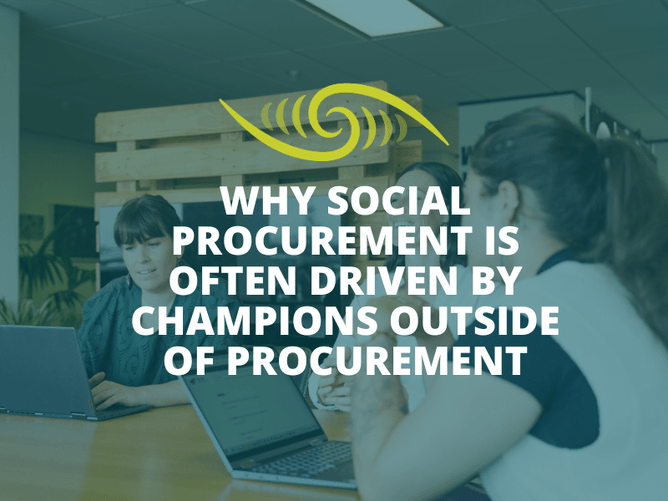In our experience, social procurement—the practice of leveraging procurement to drive positive social outcomes—is often instigated by people who aren’t in procurement. Don’t get us wrong; there are certainly champions within procurement teams, but often, the push comes from other corners of the organisation.
These champions see the opportunity to make a difference and are willing to roll up their sleeves to influence, guide, and lead the way. Here’s a breakdown of the roles we frequently see driving social procurement initiatives and why they’re so effective:
1. Iwi Engagement Leads
These individuals are on the front lines, working closely with iwi to implement their aspirations. Their deep understanding of iwi needs and priorities makes them natural advocates for social procurement, especially when it aligns with broader goals like enabling Māori economic development or supporting mana whenua businesses.
2. Sustainability/Environmental Leads
Our taiao champions—those focused on protecting the environment—often find themselves picking up social outcomes too. While their primary remit may be environmental sustainability, they recognise the interconnectedness of environmental and social outcomes, driving initiatives that address both.
3. Regional Managers
With oversight of specific regions or projects, regional managers have the influence and visibility to see where outcomes can be achieved locally. They’re often the ones advocating for social procurement as a way to create tangible benefits for the communities they serve.
4. Social Outcomes Leads
These individuals are driven by purpose. They deeply care about making a difference, whether it’s through supporting diverse suppliers, improving equity, or creating opportunities for underrepresented groups. Their passion and focus on impact make them key drivers of change.
5. Economic Development Professionals
For those focused on economic development, the case for social procurement is clear. They understand the socio-economic return on investment and know this approach works. Whether it’s supporting local businesses, creating jobs, or fostering innovation, social procurement is a logical step toward their broader goals.
6. Gen Z Trailblazers
The newest generation in the workforce may not hold formal titles, but their impact is undeniable. Gen Z employees are challenging the status quo, asking tough questions, and seeking out opportunities to drive meaningful change. They’re rallying allies and influencers to champion social procurement alongside them.
Why This Matters
Social procurement is about more than just contracts and supply chains—it’s about using organisational influence to create positive social change. The fact that so many roles outside procurement are leading the charge is both inspiring and telling. It demonstrates that social procurement isn’t confined to a single department—it’s a collective responsibility.
For organisations, the lesson is clear: Listen to the advocates within your teams, regardless of where they sit. Create space for these champions to lead and align your procurement processes with the broader values and aspirations of your organisation.
Final Thought
Procurement teams play a crucial role in enabling and embedding social outcomes, but the movement often starts with those who see the human, environmental, and economic potential of this work. By collaborating with these champions, organisations can drive impactful change that resonates far beyond the bottom line.
Who’s driving social procurement in your organisation? Let’s start the conversation.


